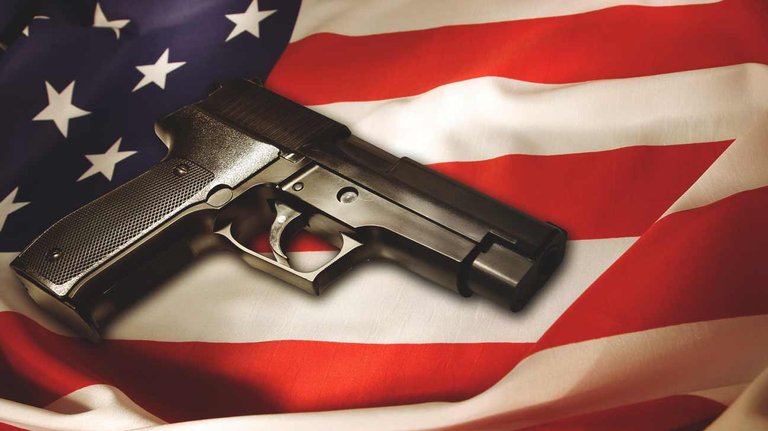
“Gun control” refers to any legal measure intended to prevent or restrict the possession or use of guns, particularly firearms. (In a broader historical sense, the term also refers to legal limits on the possession or use of other arms, including those that predate the invention of gunpowder.) In most developed countries, gun control is strict and uncontroversial. In others it is a fraught political issue, pitting those who regard it as necessary for public safety against those who view it as a dangerous infringement of personal liberty.
Nowhere in the world is gun control more controversial than in the United States, where gun possession is constitutionally protected but where murders (including mass murders) committed with guns are extremely common; the United States has by far the highest homicide-by-firearm rate among developed countries. Proponents of increased gun control in the United States argue that limiting access to guns will save lives and reduce crime; opponents insist that it would actually do the opposite by preventing law-abiding citizens from defending themselves against armed criminals.
The gun-control debate in the United States also necessarily concerns the proper interpretation of the Second Amendment to the U.S. Constitution, which reads, “A well regulated Militia, being necessary to the security of a free State, the right of the people to keep and bear Arms, shall not be infringed.” In keeping with the first clause of the amendment (the preamble), most U.S. courts, until the early 21st century, had understood it to guarantee the right of states to maintain militias or the right of individuals to “keep and bear arms” in connection with their service in a state militia, an interpretation that was consistent with a wide variety of existing restrictions on individual gun ownership and use. In United States v. Miller (1939), for example, the U.S. Supreme Court held that the Second Amendment did not prohibit laws requiring the registration of sawed-off shotguns, because such weapons did not have a “reasonable relationship to the preservation or efficiency of a well regulated militia.” In District of Columbia v. Heller (2008), however, the Supreme Court for the first time explicitly recognized an individual right to use firearms independent of service in a state militia for traditionally lawful purposes, including self-defense within the home. Two years later, the court held (in McDonald v. Chicago) that this interpretation of the amendment was applicable against state and local gun-control laws as well as against federal statutes.
In the United States, mass murders committed with guns are so frequent that the vast majority of them are not even mentioned in mainstream media outlets. Those that happen to be massive or heinous enough to gain national attention—including the murder of 49 people in an Orlando nightclub in 2016 and the massacre of 20 children and six adults at an elementary school in Newtown, Connecticut, in 2012—typically spark a short-lived and fruitless debate about the need for stricter gun control. Politicians of both major parties, fearful of retaliation from the National Rifle Association (NRA), solemnly offer their “thoughts and prayers” while refusing to enact reasonable and constitutional measures now favored by a majority of Americans, such as expanded background checks for gun purchases and the reinstatement of a federal ban on assault weapons, which Congress allowed to lapse in 2004.
Note: It is borrowed from somewhere else, thought it might interest you!!
Hi! I am a robot. I just upvoted you! I found similar content that readers might be interested in:
https://www.britannica.com/story/gun-control-in-the-us
✅ @what-is-trending, I gave you an upvote on your first post! Please give me a follow and I will give you a follow in return!
Please also take a moment to read this post regarding bad behavior on Steemit.